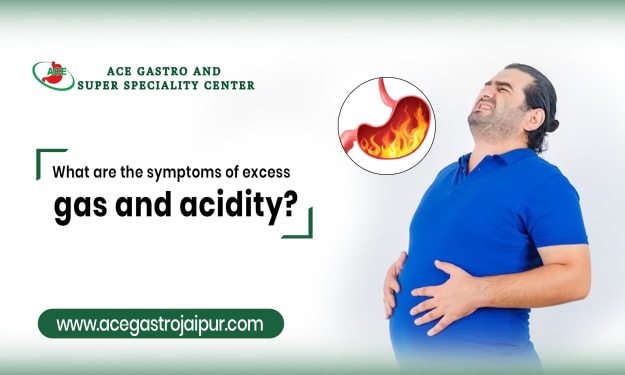Understanding Hematemesis Causes and Symptoms
Hematemesis, though a somewhat daunting term, is simply the medical way of saying "vomiting blood

Hematemesis, though a somewhat daunting term, is simply the medical way of saying "vomiting blood." While this may sound alarming, understanding the potential causes and symptoms can help demystify this condition and guide individuals toward seeking timely medical attention when necessary.
Causes of Hematemesis
- Peptic Ulcers
Peptic ulcers are open sores that develop on the inner lining of the stomach or the upper part of the small intestine.
When these ulcers bleed, the blood may enter the digestive tract and be vomited.
- Esophageal Varices
Dilated veins in the lower part of the esophagus, often associated with liver cirrhosis.
Increased pressure in these veins can lead to rupture and subsequent bleeding.
- Gastritis
Inflammation of the stomach lining that may be caused by infection, certain medications, or excessive alcohol consumption.
Severe gastritis can result in bleeding.
- Mallory-Weiss Tears
Tears in the mucous membrane at the junction of the stomach and esophagus, often due to severe vomiting.
These tears can lead to bleeding and hematemesis.
Gastroesophageal Reflux Disease (GERD)
Chronic condition where stomach acid flows back into the esophagus, causing irritation and inflammation.
Severe cases can lead to bleeding and hematemesis
- Esophagitis
Inflammation of the esophagus, which can be caused by infections, medications, or environmental irritants.
Severe cases may result in bleeding.
- Blood Clotting Disorders
Conditions such as hemophilia or thrombocytopenia, where the blood's ability to clot is impaired.
This can lead to spontaneous bleeding, including in the digestive tract.
- Liver Diseases
Liver cirrhosis, hepatitis, or other liver conditions can lead to an increased risk of bleeding, including in the gastrointestinal tract.
- Tumors and Cancer
Tumors in the stomach, esophagus, or other parts of the digestive system may cause bleeding and hematemesis.
- Medication Side Effects
Certain medications, such as nonsteroidal anti-inflammatory drugs (NSAIDs) or blood thinners, can increase the risk of gastrointestinal bleeding.
- Infections
Infections such as Helicobacter pylori (H. pylori) can contribute to the development of ulcers and bleeding in the digestive tract.
Symptoms of Hematemesis
Vomiting Blood: The primary and most apparent symptom of hematemesis is the act of vomiting blood. This can range from a small amount of blood streaks in vomit to a significant and alarming expulsion of bright red or dark, coffee-ground-like blood.
Red or Black Stools: Hematemesis may be accompanied by the passage of blood through the digestive tract, leading to the appearance of red or black stools. Black, tarry stools (melena) often indicate the presence of partially digested blood.
Weakness and Fatigue: Experiencing hematemesis can result in the loss of a significant amount of blood, leading to a decrease in red blood cell count (anemia). This can manifest as weakness, fatigue, and overall lethargy.
Dizziness and Lightheadedness: As a consequence of blood loss, individuals with hematemesis may experience dizziness and lightheadedness. This can be especially pronounced when standing up or exerting oneself.
Rapid Heart Rate (Tachycardia): The body may respond to blood loss by increasing the heart rate in an attempt to maintain adequate blood flow and oxygenation. Tachycardia is a common physiological response in individuals with hematemesis.
Pale Skin and Pallor: Anemia resulting from significant blood loss can lead to paleness of the skin. Pallor is often noticeable in the face, conjunctiva, and other mucous membranes.
Abdominal Pain: Some individuals with hematemesis may experience abdominal pain or discomfort. The location and intensity of the pain can vary depending on the underlying cause of the bleeding.
Nausea and Vomiting: Apart from the presence of blood in vomit, individuals with hematemesis may also experience nausea and repeated episodes of vomiting. This can contribute to further dehydration and weakness.
Shortness of Breath: Severe cases of hematemesis, especially those involving significant blood loss, can lead to reduced oxygen-carrying capacity in the blood, resulting in shortness of breath and difficulty breathing.
Chest Pain: In some instances, individuals may experience chest pain or discomfort, especially if the underlying cause of hematemesis is related to conditions affecting the esophagus or upper gastrointestinal tract.
Reached Dr. Sushil Kumar Jain Best Hematemesis Treatment in Jaipur
Must book an appointment with Dr. Sushil Kumar Jain, He is one of the most trusted gastroenterologists in Jaipur and provides advanced treatment of gastro disease at ACE Gastro Super-Specialty Clinic, Jaipur. Book an appointment now at +91 94620 67445.
Conclusion
Understanding the causes and symptoms of hematemesis is crucial for early detection and appropriate medical intervention. If you or someone you know experiences vomiting blood or related symptoms, seek prompt medical attention to determine the underlying cause and initiate the necessary treatment. Remember, timely action can make a significant difference in the outcome and recovery process.
About the Creator
Dr. Sushil Kumar Jain
Dr. Sushil Kumar Jain is a very renowned and trusted Gastro and Liver Specialist in Jaipur, who has 13+ years of experience in the field of gastroenterology. Dr. Sushil Kumar Jain has done his MBBS from SMS Medical College, Jaipur






Comments
There are no comments for this story
Be the first to respond and start the conversation.